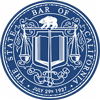









The accomplished appellate attorneys at the Law Offices of Scott Henry have successfully defended and overturned trial court judgments in state and federal courts on behalf of our clients. With our thorough command of appellate law and extensive trial experience, we provide our clients with a persuasive presentation of the issues on appeal.
If you feel you received an unfair legal outcome, it is best to speak with a qualified San Diego County appeals lawyer. In the state of California, you have 60 days from the date the judgment was entered to file a notice of appeal in a felony case. In misdemeanor cases, the deadline is only 30 days, so it is essential to consult with a criminal defense attorney as soon as possible.
An appeal is when a party in a civil or criminal action asks a higher court to review the lower court’s decision. In civil cases, either the plaintiff or defendant can file a notice of appeal. In criminal cases, generally, only the defendant can file an appeal. The party filing the appeal is known as the “appellant.” The opposing party is referred to as the “respondent.”
An appeal is not a new trial. It is simply a review of a court’s decision to look for legal mistakes that could have considerably affected the outcome of the case. Therefore, the appellate court will not hear any new witness testimony, accept any new evidence, or retry the case. In California, an appeal generally takes about 18 months. During this time, your lawyer in San Diego County could advocate diligently on your behalf throughout the many stages of the appeals process.
Once the trial court’s final judgment has been issued, your San Diego County lawyer will file a Notice of Appeal within either 30 or 60 days. These timeframes require strict compliance. Failing to meet these deadlines could forfeit your appellate rights and greatly jeopardize your chances of winning.
After the Notice of Appeal has been filed, the court clerks will prepare the transcript and give copies to the appellate court, appellant, and respondent. It is then time for the appellant’s attorney to provide a summary of the trial, offer a supporting argument detailing the legal errors made, and ask for a particular outcome. The respondent will then provide their opening brief, defending the trial court’s original decision.
After the appellant and respondent briefs are filed, both sides will present an oral argument. Oral arguments allow your lawyer to present the grounds for an appeal in front of the appellate court. The respondent – the prosecution in a criminal matter – will then have the opportunity to argue against the appeal. It is also an opportunity for both sides to answer any questions from the appellate judge.
After completing the oral arguments, it is time for the appellate court to make a decision. The court will give their determination in written form within 90 days of the oral arguments.
Winning your appeal does not mean the case is over. It means the appellate court has reversed the original court’s decision and is sending your case back to the trial court. The prosecution has several options at this point. They can appeal the court’s decision, retry the case, offer you a plea deal, or dismiss the charges. A lawyer in San Diego County could help you determine what next steps to take after winning an appeal.
If you want to appeal your criminal conviction, it is critical to consult with an attorney as soon as possible. At the Law Offices of Scott Henry, our San Diego County appeals lawyers have the experience necessary to skillfully advocate on your behalf. We could fight aggressively to get you the best possible resolution. Do not hesitate. Contact our offices today to schedule a free case review with one of our trusted appellate lawyers.
